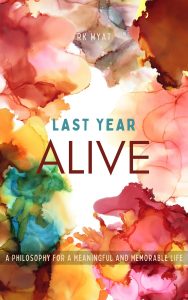On my fridge door, held in place by a magnet, there's a handwritten list of movies I want to see. Some of them are comedies. Some are drama. Some are listed simply because they're generally accepted as brilliant masterpieces and I want to find out if the hype is justified.
One thing is common with all the movies, though: all of them were written on the list years and years and years ago. And I still haven't watched all of them. Some I managed to strike out, like Airplane! and Contact and 54 and Pi. Some I'm still procrastinating to watch, like The Bridge on the River Kwai - which is weird because I'm really fascinated by bridges. I guess I've been telling myself I'll never be able to find a rental version online of a movie that came out in the 50's.
But American History X came out in the late 90's, so I had no reason not to try and find it. And then, as fate would have it, I accidentally noticed the movie would be on TV in a couple of days. I didn't even have to pay for it.
So I watched American History X. It was a good movie. I liked the neutral stand it took. In today's world, black people are almost automatically assumed the good guys, and the white bad. But in the movie, both white and black people had good and bad individuals. Most would agree that Neo-Nazi's are bad. Most would agree that murderers and robbers are bad. Most would agree that firemen are good.
But what about a racist fireman? Is he still good?
The movie, in its division of the races, is very black-and-white - but the morals and the ethics beyond the surfaces and behaviors of each individual are far from it. I don't know if Derek really turns his back to Nazim due to his prison experience, even though his eyes are opened for the true ideologies and characteristics of the races he's been polarizing since a teenager. Can one cool and goodwilled black guy make him think he did wrong by killing the men who took his car? Can one Nazi making business with a Latino convince him all Nazis are "impure"?
Maybe it doesn't matter, because after one meaningful conversation with his old teacher he realizes that the hate and the idealism will never be more important than the wellbeing of his family. Suddenly, he wants to increase the good in the world and, more so, the good in the lives of the ones he loves. Resuming his old habits after getting out of prison would be the polar opposite of that.
I'm only left asking what happened in Derek's psyche after the movie ended.
RK

